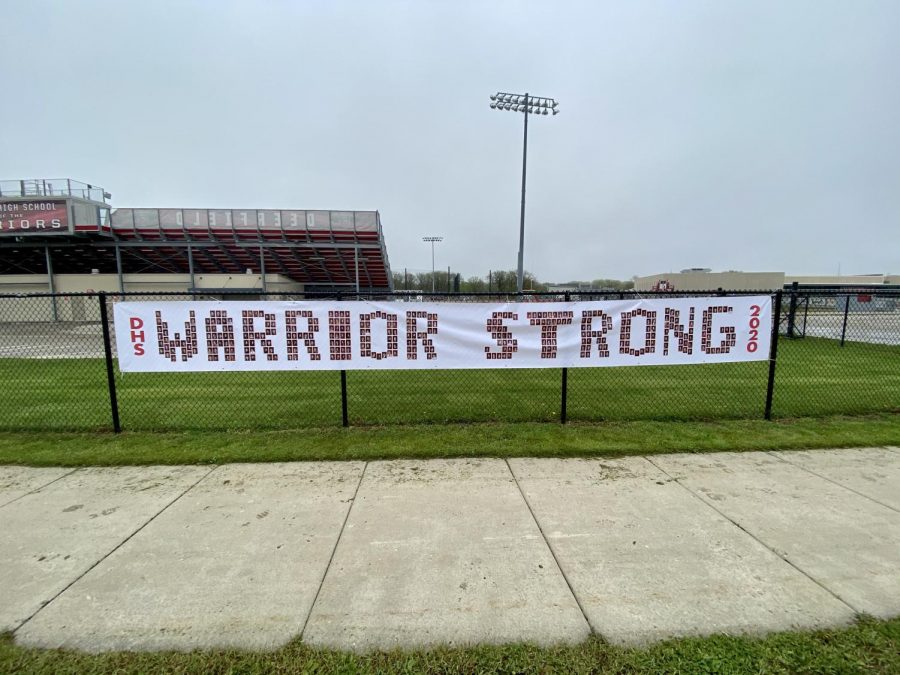Seniors’ Rules for High School – Helpful Advice for Incoming Students
May 19, 2021
As the Class of 2021 counts the days until the curtain sets on their time at Deerfield High School, the show is just about to begin for the incoming freshmen and rising underclassmen who will soon step out onto the stage. Even as the faces of graduating seniors fade from yearbooks, they have made a lasting impact through their advice to their successors.
With everything happening around the school with no less than six classes a day, newer students often find it difficult to be aware of everything being assigned to them. Whereas in previous grade levels, keeping track of all the assignments was simply a helpful practice, that is not the case in the upper echelons of secondary education. It is imperative that students keep track of all the events and due dates they collect throughout the day. Staying organized in the form of a calendar or assignment notebook is the first step to effective time management. At the very basic level, being structured can relieve stress with some sort of planning in advance so it is always favorable for students to start planning out their work and important dates.
When students step out of the classroom, the bustling hallways of DHS can be overwhelming at times. However, this is the place where peer-to-peer connections are made. Although it would certainly be ridiculous to bring the classroom mindset into the halls, it is just as important to not completely miss out on the social experience. Building meaningful relationships with fellow students is not only a way to establish a support network for hard times, it gives students a break to look forward to in and out of school. With patience, some of those connections can blossom into employment opportunities and mentorships.
Nonetheless, it is important to keep in mind common courtesy, especially in the hallways. It doesn’t take more than ten seconds to recognize if someone is making passing periods worse for everyone by clogging up the intersections. One senior recommends, “No one wants to awkwardly push through your friend group while apologizing when it’s definitely not their fault. Keep it moving, or you will be forcibly grabbed by the backpack and yanked out of the way.” It is always better to take those ten seconds to keep moving forward rather than giving that time for another student to be annoyed at your presence.
At the end of the school day comes the various clubs and athletics which are just as meaningful as what students absorb during the day. In many ways, what students learn from these after school activities are complementary and enhance their time in class. An athletic activity can teach even the least physically gifted student perseverance and teamwork while others promote socialization and leadership. In addition, students will often find their involvement in the plethora of activities beneficial to their resume or college application. Clubs like Spectrum, the Key Club, and the Human Rights Club offer an exciting extracurricular experience which requires little prior talent beside compassion.
When it comes to high school, the one thing nobody can avoid is procrastination; it is like the death and taxes of secondary education. No matter how good someone’s work ethic is, it is undeniable that constant work is not self-sustainable and certain tasks will be pushed back over others. This is no means an excuse to adopt procrastination as a strategy, but instead students should try to first understand why they procrastinate and find motivation through that comprehension. High school is a big jump in terms of pressure on students from middle school―it is the environment where students develop rigorous work habits to carry them onto college and future employment.
From the various seniors interviewed, the worst part about high school is missing out. From academic achievements to meaningful experiences, high school offers a unique environment for students to take their interests into the next level, a first taste at the wonders of adult life. The patterns and habits a student develops during their time in high school will be reflected throughout the rest of their life. The best thing a student can do is take advantage of the provided opportunities to guide them on this transformative journey.

